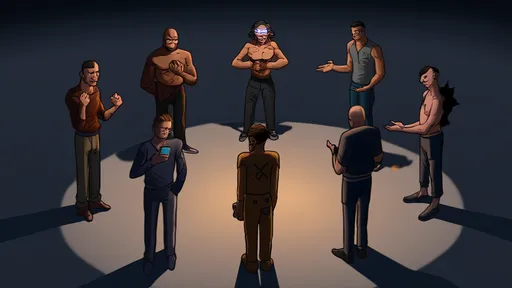In today’s fast-paced corporate world, being invisible at work is a career killer. Many professionals struggle with the paradox of working hard yet remaining unnoticed by leadership. The phenomenon of workplace "invisibility" isn’t just frustrating—it can stall promotions, limit opportunities, and even lead to premature exits from promising roles. But what if you could flip the script in just three days? The key lies in strategic visibility, not just hard work.
The traditional advice—"keep your head down and deliver results"—no longer suffices in modern workplaces where attention spans are short and competition is fierce. Leaders are overloaded with information, making it easy for even high performers to blend into the background. The solution isn’t self-promotion or empty theatrics; it’s about creating memorable moments that anchor you in your manager’s consciousness without triggering skepticism.
Consider how memory works in high-stakes environments. Neuroscientists confirm that emotional resonance and novelty create lasting mental imprints. When you engineer interactions that stand out for their clarity, relevance, and slight unpredictability, you hijack the brain’s natural filtering system. This explains why employees who solve problems before they’re flagged or reframe challenges with fresh perspectives get recalled during talent reviews, while consistent but unremarkable performers fade into obscurity.
Day one begins with precision timing. Schedule a brief check-in when your leader’s cognitive load is lowest—typically mid-morning after their first coffee but before back-to-back meetings. Present a single concise observation about a project that aligns with their current priorities, then pause. Most professionals overwhelm bosses with details; your restraint creates contrast. End with an open loop: "I’m testing an alternative approach to X—can I share preliminary data Thursday?" This triggers the Zeigarnik effect, making your unfinished business mentally sticky.
On day two, leverage environmental disruption. Humans remember deviations from routine. If you normally email reports, hand-deliver a printed executive summary with a sticky note highlighting one unexpected insight. The tactile experience and spatial context (their office vs your desk) create dual coding in memory. Better yet, position yourself near the coffee machine when they’re likely to pass by, then ask for a micro-opinion: "Between these two dashboard designs, which better supports your investor update?" The 30-second interaction costs them nothing but makes you the person who values their judgment.
The third day demands strategic reciprocity. Instead of asking for something—time, resources, approval—offer a calibrated resource. Forward an industry report with a handwritten margin note connecting it to their recent concern about competitor moves. Better yet, introduce them to a contact who solves a nagging problem. These actions position you as a node in their network rather than a drain on their attention. The psychological principle of reciprocity ensures you’ll occupy mental real estate disproportionate to the interaction’s length.
What makes this approach revolutionary is its rejection of visibility clichés. No showboating, no overloading communication channels, no sycophancy. The magic lies in intermittent reinforcement—the same principle that makes social media addictive. By being predictably excellent but unpredictably insightful, you become the slot machine that occasionally pays out jackpots of value, keeping leadership perpetually curious about your next move.
Critically, this method works precisely because it doesn’t feel like a tactic. Each interaction is authentically rooted in real work, yet deliberately designed for memorability. The goal isn’t to be the loudest voice in the room, but the one that lingers in the room after you’ve left. When executed well, these micro-moments compound over time, transforming perceived "overnight successes" into carefully constructed career trajectories.
The corporate landscape is littered with talented ghosts—people who assumed merit would speak for itself. In reality, visibility is a skill separate from competence. By mastering the art of strategic presence, you ensure your contributions don’t just exist, but resonate. Three days won’t make you CEO, but they can break the cycle of anonymity that keeps deserving professionals stuck on the sidelines.

By /Jun 17, 2025

By /Jun 17, 2025

By /Jun 17, 2025

By /Jun 17, 2025

By /Jun 17, 2025

By /Jun 17, 2025

By /Jun 17, 2025

By /Jun 17, 2025

By Sophia Lewis/Apr 19, 2025

By Elizabeth Taylor/Apr 19, 2025

By James Moore/Apr 19, 2025

By Rebecca Stewart/Apr 19, 2025

By Ryan Martin/Apr 19, 2025

By James Moore/Apr 19, 2025

By Sarah Davis/Apr 19, 2025

By George Bailey/Apr 19, 2025

By James Moore/Apr 19, 2025

By Amanda Phillips/Apr 19, 2025